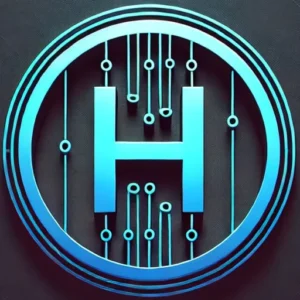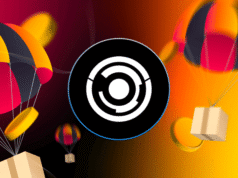The gaming industry is experiencing a major shift, with Unity playing a pivotal role. Web3 games leveraging Unity SDKs are projected to dominate the market by 2025, offering players unprecedented ownership and control. The era of clunky, visually unappealing blockchain games is ending, ushering in a new phase where blockchain integration enhances the overall gaming experience. Unity, a popular game engine for both indie and AAA titles, is at the heart of this transformation.
Unity’s strength lies in its accessibility and versatility. Its infrastructure provides Web3 developers with reliable tools for developing blockchain games. This allows seamless integration of wallets, smart contracts, and NFTs without sacrificing performance or user experience.
Cross-Platform Power
Unity‘s cross-platform capabilities enable developers to create a single game that runs seamlessly on various platforms, including mobile, PC, console, and web browsers. This single-code development approach reduces costs and expands the potential audience.
This is especially crucial for Web3 gaming, where accessibility is paramount, particularly in developing markets. Mobile accessibility is vital for the growth of Web3 gaming, especially in developing countries where mobile devices are the primary gaming platforms and play-to-earn models offer income opportunities.
Optimized Performance
Blockchain transactions can be resource-intensive, leading to potential lag and performance issues. Unity’s optimized architecture is designed to address these problems. Its asset management, rendering, and memory handling ensure that Web3 games can match the performance of traditional games, which is essential for multiplayer experiences.
The true potential of Unity is realized when combined with specialized Web3 SDKs. These Software Development Kits act as bridges, simplifying the complexities of blockchain and allowing developers to focus on creating engaging gameplay. Several specialized SDKs have emerged, specifically catering to Unity developers’ Web3 integration needs, significantly lowering the barriers to blockchain game development.
- Moralis Unity SDK: Simplifies blockchain interactions with user-friendly APIs, handling authentication, wallet connectivity, and NFT queries.
- Thirdweb Unity SDK: Provides ready-made smart contracts and tools for quickly implementing Web3 features like NFTs and marketplaces.
- ChainSafe Unity SDK: Offers low-level blockchain access for developers requiring fine-grained control, supporting multiple chains like Ethereum and Polygon.
- Enjin Unity SDK: Specializes in NFT integration, streamlining the creation, management, and trading of in-game items as blockchain assets.
Early blockchain games often suffered from poor graphics and gameplay. Unity’s professional-grade tools are changing this perception. Unity’s tools enable Web3 games to achieve visual fidelity and gameplay polish comparable to traditional AAA productions, disproving the idea that blockchain games need to make graphical or mechanical compromises.
This includes stunning visuals, sophisticated AI, realistic physics, and immersive sound design. Games like Illuvium are demonstrating Unity’s potential by delivering impressive graphics and complex gameplay within a Web3 environment.
The promise of “play-to-earn” depends on creating sustainable in-game economies. Unity SDKs are equipped to handle this challenge, supporting complex token systems, reward structures, and anti-inflationary measures. Unity SDKs help build stable Web3 games to-earn games. They support complex economies with different tokens, rewards, and measures to prevent inflation.
Built-in analytics enable developers to monitor and adjust these economies in real-time, ensuring long-term stability and fairness.
Unity’s large community and extensive resources make Web3 game development more accessible. Whether through detailed documentation, active forums, or the Unity Asset Store, developers have a wealth of support available. Unity has a big community and many resources that make Web3 game development easier for all game studios.
The potential of Unity and Web3 is not just theoretical. Several successful games have already demonstrated the viability of this combination. Multiple successful Web3 games built with Unity prove this technology combo’s viability for commercial gaming. Games like:
- Axie Infinity demonstrated Unity’s ability to handle large player populations and complex economic systems.
- The Sandbox utilized Unity for its metaverse development tools, empowering user-generated content and virtual real estate systems.
- Gods Unchained proved that Unity-powered blockchain games can rival the quality of traditional trading card games.
The path to mainstream Web3 gaming has obstacles. However, Unity SDKs are actively addressing these challenges. Unity SDKs tackle the primary obstacles that previously prevented mainstream Web3 gaming adoption.
This includes simplifying onboarding for new players, implementing robust security measures to prevent exploits, and navigating the complex regulatory landscape surrounding blockchain technology.
Looking ahead to 2025 and beyond, the integration of Unity and Web3 will continue to deepen. We can expect advancements in AI-driven content creation, improved blockchain performance, and wider adoption by major game studios. As 2025 progresses, Unity’s position in Web3 gaming will strengthen through several emerging trends.
The rise of Web3 games built with Unity SDKs represents a fundamental shift in the gaming landscape. It’s a move towards greater player empowerment, more sustainable economies, and a future where the lines between traditional and blockchain gaming become increasingly blurred. As tools improve and more developers use Unity’s Web3 features, the line between traditional and blockchain games will blur.




